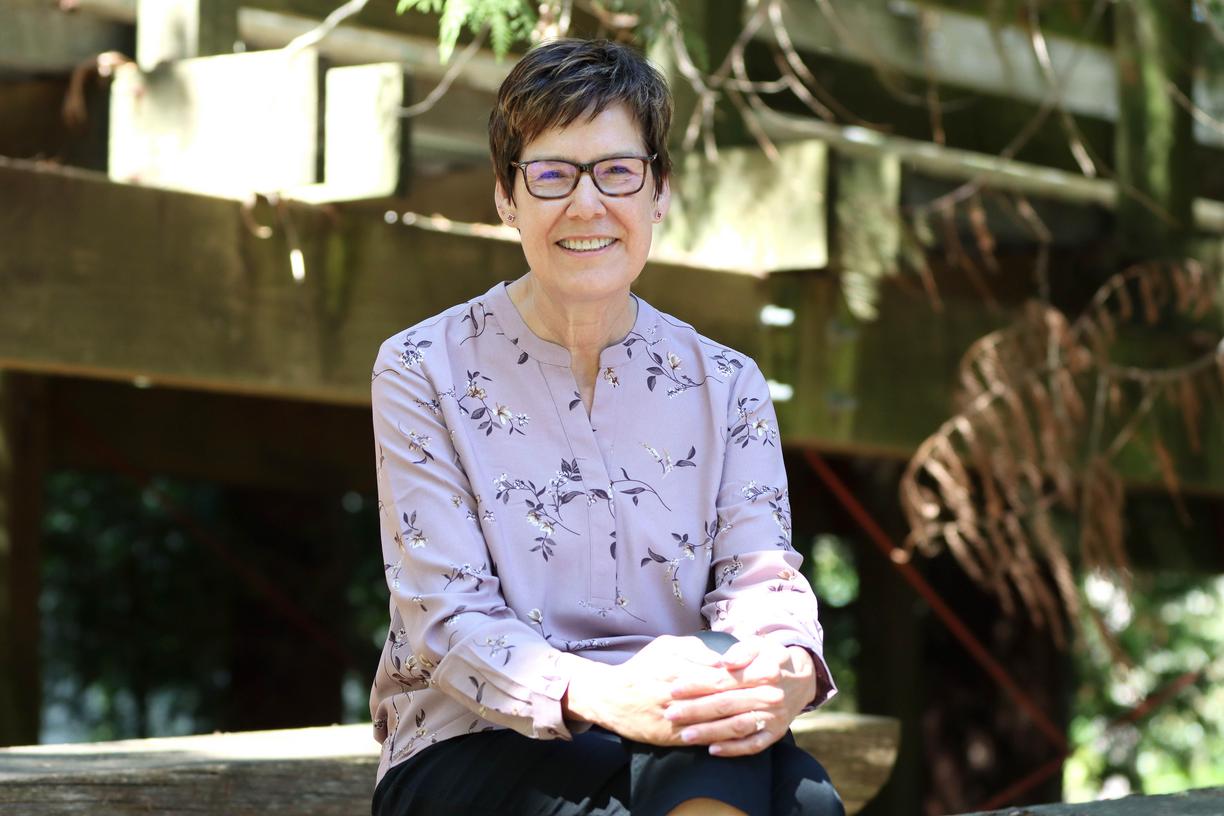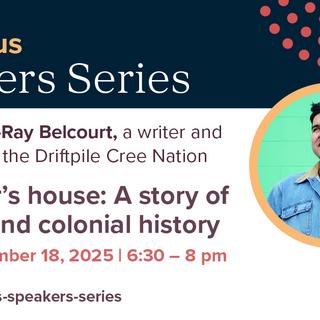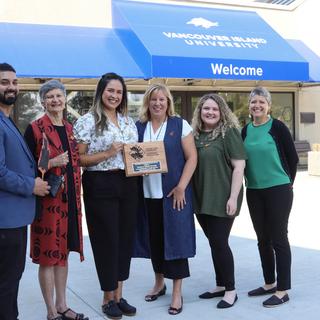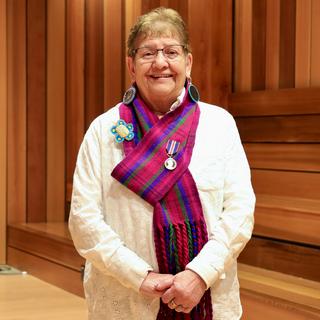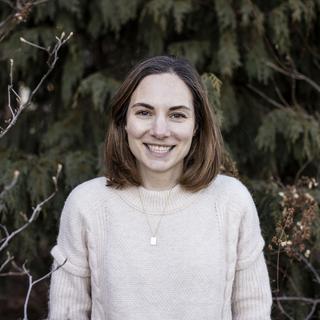VIU alum Dr. Terry Poucette is an Associate Professor and the Director of the Kiipitakyoyis, or Grandmother’s Lodge, at the Faculty of Social Work, University of Calgary. The primary purpose of the Lodge is to recruit and retain Indigenous students, faculty and staff by creating a sense of belonging and community at the university.
That sense of belonging is one that Terry holds near and dear, having experienced it for herself during her time at VIU. She graduated in 1998 from the Arts One First Nations BA First Nations Studies program with distinction.
We caught up with Terry to find out more about what she’s been up to since VIU and her journey to her current position.
Tell us about yourself.
I am a First Nations woman from the Stoney-Nakoda First Nations, Treaty 7, in Alberta. I was born in Calgary and raised on the Stoney reserve. I am a wife and a mom to two wonderful rez dogs. Sadly, my only child died from inter-generational trauma when he was a young adult. I live at the Stoney Reserve. I am an Associate Professor with the Faculty of Social Work at the University of Calgary.
Why did you choose VIU?
I wanted to see life off the reserve, outside of Alberta. VIU attracted me with its Arts One First Nations Studies program. It was scary moving to another province, but I knew I’d be with other Indigenous people in the program and have a sense of belonging to an Indigenous community on campus. Most Indigenous people see the impacts of colonization and residential schools in their communities and want to get an education to help their communities recover and heal from this devastating legacy. What we want is not necessarily degrees taught entirely from a colonial paradigm, but those based on Indigenous worldviews and ways of knowing and doing. I knew I’d get that in the Arts One program and the First Nations Studies degree, as most of the instructors and students were Indigenous and the curriculum was Indigenous-led.
Can you share a highlight from your time at VIU?
Belonging to an Indigenous community on campus and the wonderful Indigenous students I met, many of whom are still friends. I loved the positive campus atmosphere and the beauty of Snuneymuxw territory. In my first semester, I could hardly get any work done as I was mesmerized by the beauty of the ocean, mountains and trees. Thank you to the Snuneymuxw people for allowing me to live and learn on your territory.
Was there an experience that still stays with you today?
Vancouver Island First Nations ceremony was part of the Arts One curriculum. They have left us now for the spirit world, but Elders Ellen White and Ray Peters were the Elders-In-Residence. I loved their humour, teachings, stories, Coast Salish songs and dances, ceremonies and going to potlatches with them. Land-based learning was also part of the Arts One curriculum. Elders Ellen and Ray took us to Kuper Island, where we learned about plants medicines, animals and nature, before going to the Long House for ceremony and food. It was wonderful.
Can you share a bit about your journey since VIU?
After VIU, I enrolled in the University of Victoria’s Master of Public Administration program, graduated in 2001 then worked as the Executive Director of Inter-Tribal Health Authority for eight years. Then I enrolled in UVic’s Public Administration PhD program, graduating in 2017. It took longer than planned to get my PhD, as my son died, and I was thrown into grief and depression. I managed to graduate one year after losing him. Then I worked as a limited term Assistant Teaching Professor with UVic’s Indigenous Community Development and Governance Diploma program. I had spent 25 years on the Island by then. When my term ended, I moved back to the Stoney Reserve and worked as the leader of the Indigenous Relations Office at the City of Calgary, for four years. After the pandemic, the City implemented a return-to-office policy and the daily commute didn’t work for me. I started as an Associate Professor at University of Calgary in January 2024.
Tell us about your role leading Kiipitakyoyis?
Kiipitakyoyis was named by a Blackfoot Elder and translates into “Grandmothers Lodge” in the Blackfoot language. The Lodge keeper is a Metis Elder. We hope to create a sense of Indigenous community and belonging for Indigenous students, offer ceremony, recruit and retain Indigenous social work students, help the Faculty of Social Work advance its goal of decolonization, educate the faculty about Indigenous peoples and guide its Indigenous curriculum and initiatives. We want to prepare graduates to know and effectively and respectfully work with Indigenous peoples, because many of their clients will be Indigenous, given the assorted problems created by colonization’s legacy.
What role do you believe education plays in Truth and Reconciliation?
The day I left my reserve to move to Nanaimo, my Chief came over, gave me gas money and said, “Education is one of the most powerful tools of colonization. Once you’re educated, you’re not going to want to come back here.” Post-secondary institutions have historically advanced colonization by requiring students to learn skills, knowledge and ways of knowing from a colonial-western paradigm and invalidating Indigenous ways of knowing and doing. TRC calls for the development of curriculum to teach Canadians about Canada’s history of the colonization of Indigenous peoples, treaties, and the many historic and contemporary contributions of Indigenous people to Canada. Post-secondary institutions have a responsibility to teach students the truth in Truth and Reconciliation and to advance reconciliation instead of expecting Indigenous people to advance reconciliation for them. They need to examine internal systems that have historically disadvantaged Indigenous students, decolonize curriculum, use Indigenous pedagogy, respect and value Indigenous ways of knowing and doing, and create Indigenous communities and supports on campus to attract and retain Indigenous students to graduation. Indigenous people can help guide those processes. Education was historically used to colonize Indigenous peoples, but can now be used to decolonize and support Indigenous peoples’ recovery from colonization’s legacy and rebuild their communities. As Senator Murray Sinclair said: “Education has gotten us into this mess, and education will get us out.”

